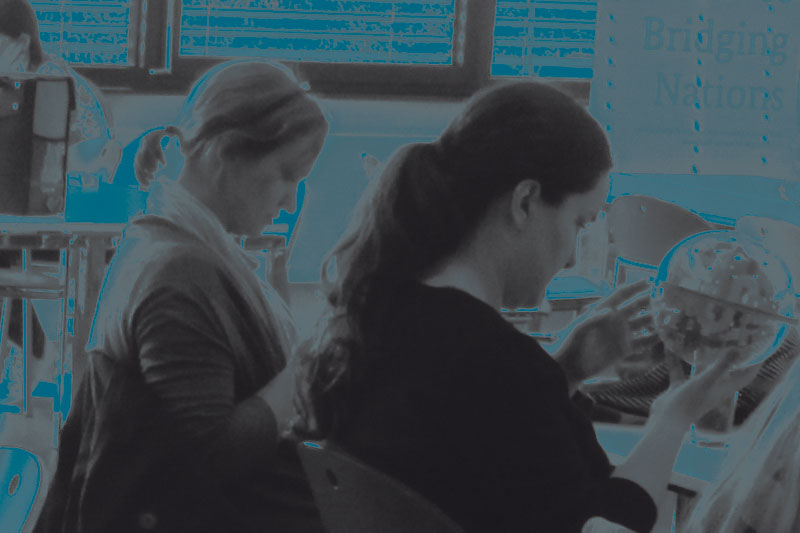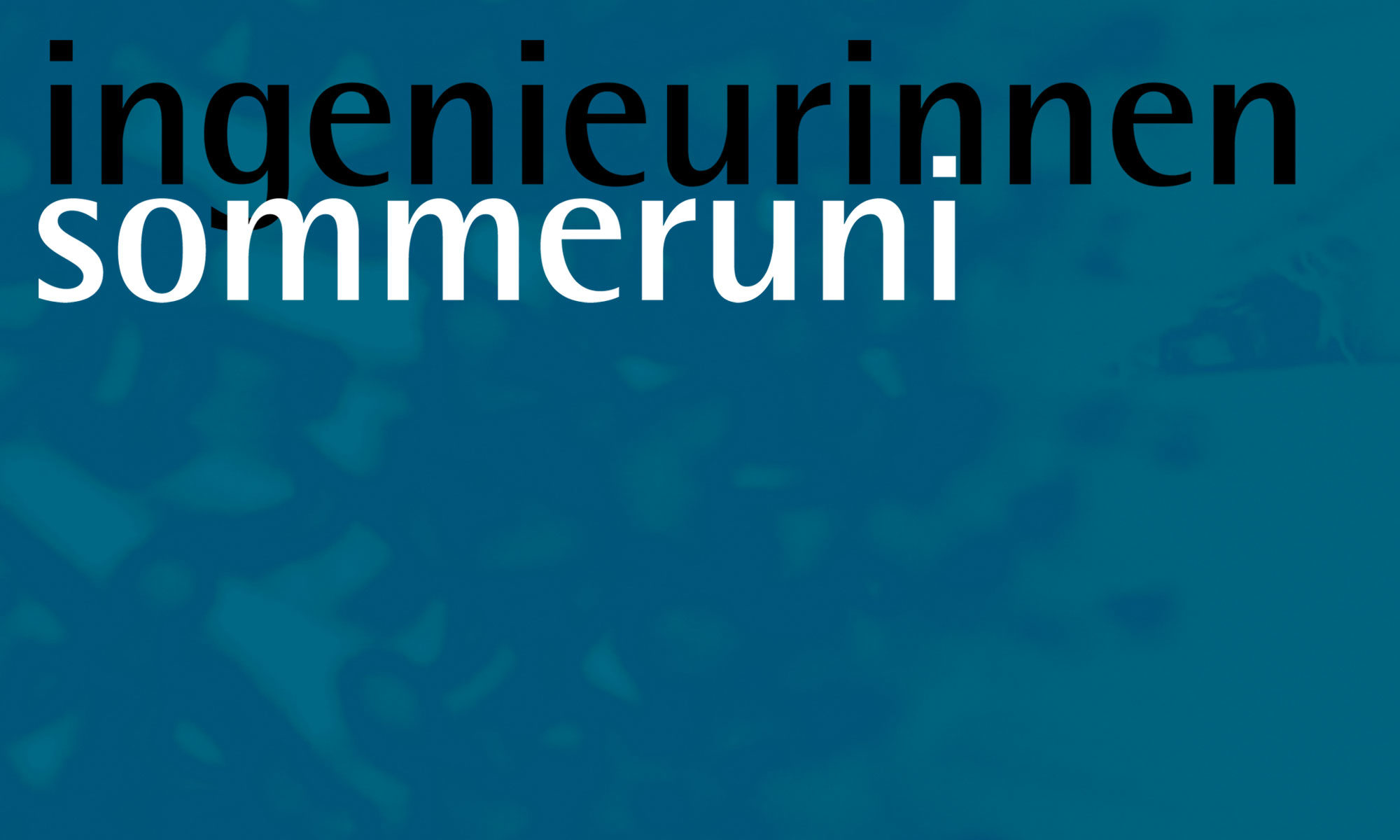
Dear Participants, Lecturers, and Friends of the Summer Universities 2020,
we look back on exciting months full of new intensive experiences: The 12th Ingenieurinnen-Sommeruni went online! From July to Oktober 2020 some 50 courses got lots of applaus from student participants nearby and far away.
The International Summer University for Women in Engineering at Bremen University switched to flexible online teaching in 2020 and the echos of participants were enormous. More than 230 students took part in courses, and were happy about online exchange, talks and discussions.
Our thanks…
As organizing team we thank our fantastic lecturers – the new as well as the familiar – for the exciting, personal and compact teaching.
Many thanks also to all the participants for active participation, discussions, comments and criticism, networking and collegiality. A big ‘Thanks’ goes to those, who for different reasons, would never have been able to travel to Bremen; but they sent us their joy about this online opportunities. We will now think about future ways to combine online and physical teaching in Bremen.
We are MUCH aware that online teaching is not at all comparable to the common, wonderful contacts between lecturers and students we all wish for every summer university. Not to be able to see you in person, to join you during lunch break, to go to excursions or to party together was a great pity and we were missing all of this and more.
Last but not least we warmly thank our student assistants team. It was good to have you as the only students in place at the University during the summer.
Our Review
Our focus 2020 brought some unexpected topicality:
“Boundaries of the Body”
(Women’s) Bodies are sites of technological developments. Boundaries and limits become increasingly blurred: either through the optimization of health parameters, or the digital and technical enhancement of the body, up to unregulated collection of body-related data, and the bodies suffering the consequences of technology-based warfare. The Summer University 2020 wanted to give space and time for critical reflections and welcomed experimental debates on the relations of technological knowledge and developments in societies. We saw that several online courses integrated these topics.
Our motivation is to present the topics about gender diversity and feminist perspectives on teaching and society as cross-cutting issues, to integrate these into teaching and prevent these from “staying aside” of courses in separate courses.
Our Outlook…
We are curious to read your evaluations and to receive you suggestions. These will be taken into the planning of the next summer university year 2021.
The next upcoming online period will be a good moment to improve teaching methods. But we hope that at least a short version of summer university offers at Bremen will be possible.
We invite you all to partcipate and look forward to welcoming you next summer!
Greetings from Bremen,
Henrike Illig and Veronika Oechtering
There were no participation fees in 2020. Short information about the published courses:
- Python für Anfängerinnen (Mo 20.7.- Do 23.7.)
- Wie wir Maschinen beibringen sexistisch zu sein – Ursachen, Probleme und Folgen von Bias in Maschinellem Lernen/KI (Mo 20.07.- Fr 24.07.)
- Diskriminierung und Antidiskriminierung im Arbeitsleben – Probleme und mögliche Handlungsstrategien, (Di 21.- Do 23.7.)
- How (not) to Master your Thesis – Akademische Arbeiten meistern (Mo 27.07.- Fr 31.07.)
- Apps selbst entwickeln (Mo 03.08.- Fr 07.08.)
- Diskriminierung durch Algorithmen? – Technikethische Reflexionen zu aktuellen Herausforderungen, (Di 04.-06.08.)
- Qualitätsmanagement in Entwicklung, Produktion und Beschaffung (Mi 05.08.- Fr 19.08.)
- Mikrocontrollerplatine programmieren: Calliope mini /Programming microcontroller board Calliope mini (Mo 10.08.- Di 11.08.)
- Einführung in das Projektmanagement (Mo 10.08.- Sa 15.08.)
- Grafisch programmieren mit Calliope mini (Teil 2) (Do 13.08.- Fr 14.08.)
Sprachverarbeitung – Verfahren und Anwendungen (Fr 14.08.- Mo 17.08.) - Einführung in maschinelles Lernen /Introduction to Machine Learning (Fr 14.08.- Sa 22.08.)
- Hands on Deep Learning (Fr 14.08.- So 30.08.)
- Kreativitätstechniken und Ideenmanagement (Mo 17.08.- Di 18.08.)
- Netzwerk- und Hardwarelabor, Teil 1 (Mo 17.08.- Mi 19.08.)
- Einführung in die Strömungssimulation mit OpenFOAM / Introduction into Computational Fluid Dynamics using OpenFOAM (Mo 17.08.- Do 20.08.)
- Software-Entwicklung in der Medizin. Einblicke in den Alltag einer Informatikerin (Mo 17.08.- Fr 21.08.)
- Datenschutz und Datensicherheit (Mo 17.08.- Mo 24.08.)
- Gender & Diversity als Schlüsselkompetenzen in Studium und Beruf (Mi 19.08.-Do 20.08.)
- Netzwerklabor Teil 2 mit Wireshark (Mi 19.08.- Fr 21.08.)
- Sexismus – ohne mich! Ein Reflexions- und Argumentations-Workshop (Fr 21.8.)
- Prozessentwicklung im Qualitätsmanagement (Fr 21.08.- Mi 26.08.)
- Erfolgreich Verhandeln (Mo 24.08- Di 25.08.2020)
- Regenerative Design – mit intelligenten Konzepten die Welt verändern / Regenerative Design – co-create the world with intelligent solutions (Mo 24.08.- Mi 26.08.)
- Einführung in Java (Mo 24.08.- Fr 28.08.)
- Einführung in die Welt der Datenbanken und der Datenbankmanagementsysteme (Mo 24.08.- Sa 29.08.)
- Dem Werkstoffversagen auf der Spur (Praxisorientierte Schadensanalyse) (Mi 26.08.- Fr 28.08.)
- Und was jetzt? – Gestalte dein Leben selbstbestimmt (inclusive deiner Arbeit) / And now what? – Design your life and work (Do 27.08.- Sa 29.08.)
- Alle gleich? Diversität und Ungleichheiten im Studium (Fr 28.08.)
- Scrum Project: Agile Storyboard – Applied Scrum Master Certification (Fr 28.08.- Sa 05.09.)
- Hilfe, ein Konflikt – weglaufen bringt nichts! (Mi 02.09.- Do 03.09.)
- Einführung in die Programmierung mit Python (Mi 02.09.- Do 10.09.)
- Bildanalyse mit Neuronalen Netzwerken / Image analysis with neural networks (Mo 07.09.- 10.09.)
- Embodied Communication (Mo 14.09.- Di 15.09.)
- Einstieg in Python (Mo 14.09.- Do 17.09.)
- Programming for Data Analysis and Statistics with R (Mon 14.09.- Thu 17.09.)
- Gendersensible Sprache. Wie es geht und warum sie wichtig ist (Fr 18.9.)
- OpenSCAD (Sa 19.09.- So 20.09.)
- Data Feminism – Erkundungen zwischen Cyber-, Xeno- und Technofeminismen (Mo 21.09.- Do 24.09.)
- Grundlagen des Computer-Aided Design mit FreeCAD und Python / Hack your CAD models! Foundations of Computer Aided Design (CAD) with FreeCAD and Python (Mo 21.09.- Fr 25.09.)
- Engineering for social transformation: climate change, technology and gender (Tue 22.09.- Wed 23.09.)
- Let’s Play! Zoom-Theater, Telefon-Games und andere digitale Kulturformate (Mo 28.09.-Fr 02.10.)
- Think Global, Act Local: the impact of the ‚New Urban Agenda‘ on our everyday life. (Tue 29.09.-Thu 01.10.)
